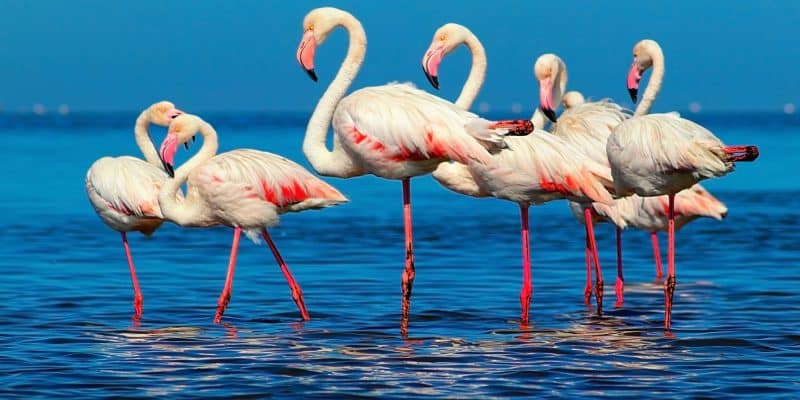The majestic and iconic pink flamingos roam the lakes of East Africa in spectacular colonies, offering breathtaking views to amazed onlookers. However, a recent study by King's College London reveals a grim reality. These iconic birds are facing increasing threats from rising lake levels as a result of climate change.
The study, published in the journal Current Biology, is the first to use satellite earth observation data to investigate the impact of rising water levels on the main flamingo feeding lakes in Ethiopia, Kenya and Tanzania over a 23-year period. The findings are alarming. Rising sea levels are reducing the flamingos’ main source of food, jeopardising the very future of this emblematic species.
The researchers found a significant reduction in phytoplankton biomass, a vital food resource for flamingos, in the region’s soda lakes. This decrease is directly linked to rising water levels, which dilute the unique chemical composition of the soda lakes, leading to a decline in phytoplankton populations. As a result, flamingos are facing a growing shortage of food in their historic feeding grounds. In the soda lakes of East Africa, phytoplankton biomass has declined since 1999. On average, chlorophyll concentrations have fallen significantly by 3.9 mg per m3 per year.
An uncertain future for an avian icon
The researchers warn that flamingos may be forced to move to new, unprotected areas in search of food, which could expose them to additional dangers and further upset their ecological balance. They call for coordinated conservation action across national borders, as well as improved monitoring and more sustainable management of the surrounding land.
Read also-KENYA : des millions de flamants roses menacés par la déforestation
The results of this study underline the urgent need for action to protect flamingos and their fragile habitat. Governments, conservation organisations, researchers and civil society must join forces to develop management strategies adapted to climate change, strengthen monitoring of lake ecosystems and implement effective conservation measures to ensure the long-term survival of East African flamingos.
Boris Ngounou







